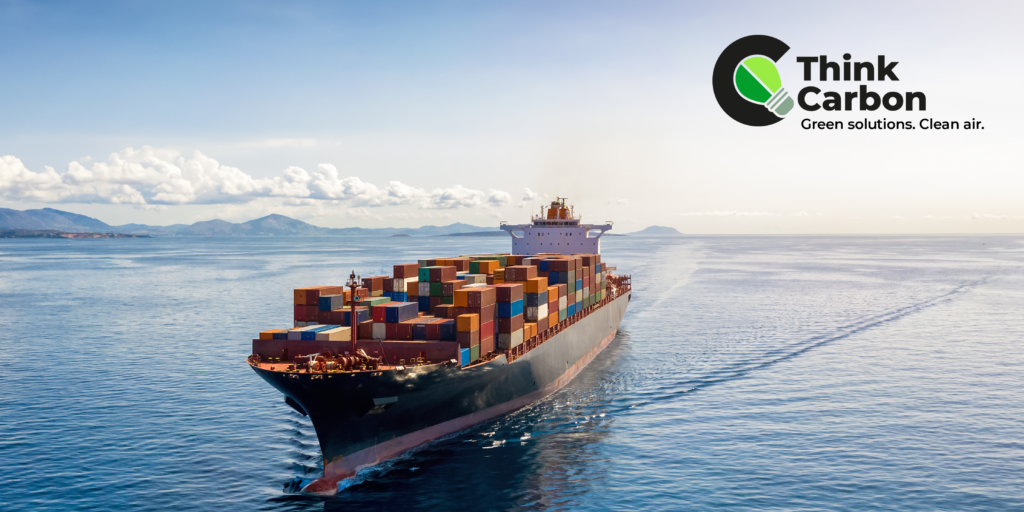Charting Course to Greener Waters: A Carbon Tax on Shipping Emissions

A Balancing Act on High Seas
A proposed carbon tax on shipping emissions, alongside substantial US subsidies for renewables, could potentially bridge the cost gap between fossil-based fuels and sustainable alternatives.
The global shipping sector has made very limited progress towards decarbonising, largely due to the high cost of renewable fuels compared to bunker fuel. However, the winds of change may soon fill the industry’s sails. A prospective carbon tax on shipping emissions, combined with substantial American subsidies for renewable energy, could equalise this cost difference. If this levy and the subsidies to actually happen, then this could greatly hasten the industry’s green revolution.
Charting the Course Towards Reduced Emissions
The shipping industry is responsible for a substantial 3% of global emissions, and it is in dire need of a plan to reduce its carbon footprint. Ships have a lifespan of a quarter-century, meaning that any vessels on the order books today will still be crossing the seas in a net-zero-emission world by 2050. Alternative fuels, particularly those based on green hydrogen, though promising, are still immature and must undergo much further development before they are viable.
Navigating the Alternatives: Green Ammonia and Methanol
Among the alternatives, green ammonia appears to be the most competitive option. However, the shipping industry is still navigating through the safety implications of this fuel. On the other hand, green methanol, created by the reaction of hydrogen with carbon dioxide extracted from biomass or the atmosphere, is a proven technology. It is, therefore, the likely starting point. In fact, 130 ships, fully capable of utilising methanol as fuel, have already been commissioned.
Tackling the Cost Obstacle
However, the cost obstacle remains. Bunker fuel remains significantly cheaper than either of these green alternatives. To illustrate, consider last year’s price of bunker fuel which was $825 per tonne. Even with the lower estimates of green hydrogen cost at $2.5 per kilogramme, ammonia would cost $1239 per tonne (equivalent to fuel oil), as per Aparajit Pandey, the shipping decarbonisation manager at the clean energy think-tank RMI. Methanol would elevate the cost to a steep $1400 per tonne.
Considering the more than three tonnes of carbon in each tonne of fuel oil, the levy would need to be set at $130-180 per tonne of CO2 to make the switch economically viable, even before accounting for any infrastructure costs.
However, this is not an unreasonable figure. The European Union Emission Trading Scheme (EU ETS), set to be imposed on shipping emissions from 2024, is currently hovering around €90 per tonne and is projected to rise in the years to come. Even a lower carbon tax could provide some relief, especially when it is coupled with US subsidies. These subsidies could shave $1.5 per kilogramme off the cost of hydrogen. This could drastically reduce the required carbon levy into double digits, or even further for fuels based on the cheapest hydrogen.
A Call to Arms for the Shipping Industry
Nations that export fossil fuels or goods over extended distances may tremble at the thought of a levy at any level. However, they should reconsider their stance. Even a tax above $100 per tonne only adds minuscule amounts to the cost of the goods being transported. It is high time for the shipping industry to rally and firmly voice its support for a carbon tax.
Insights from Think Carbon
In the evolving dialogue on green shipping, Think Carbon, a company specialising in predictive carbon calculation using the latest in artificial intelligence technology, has entered the conversation. Their calculated take on the proposed subsidies for green fuels and the levy on fossil-based fuels is that it is not just a good move, but one that is long overdue.
Think Carbon applauds this progress, “We are thrilled to see the international shipping industry finally addressing the pressing issue of carbon emissions. The proposed subsidy on green fuels and the levy on fossil-based fuels is a much-needed and welcomed shift in the right direction.”
They also echo the call to arms for the wider global community, “We wholeheartedly encourage more nations to invest in carbon-reducing technologies. It is crucial for not only the shipping industry but all sectors to pivot towards sustainability for the health of our planet.” They make it clear that in this era of environmental consciousness, every step towards a sustainable future is a stride worth taking.